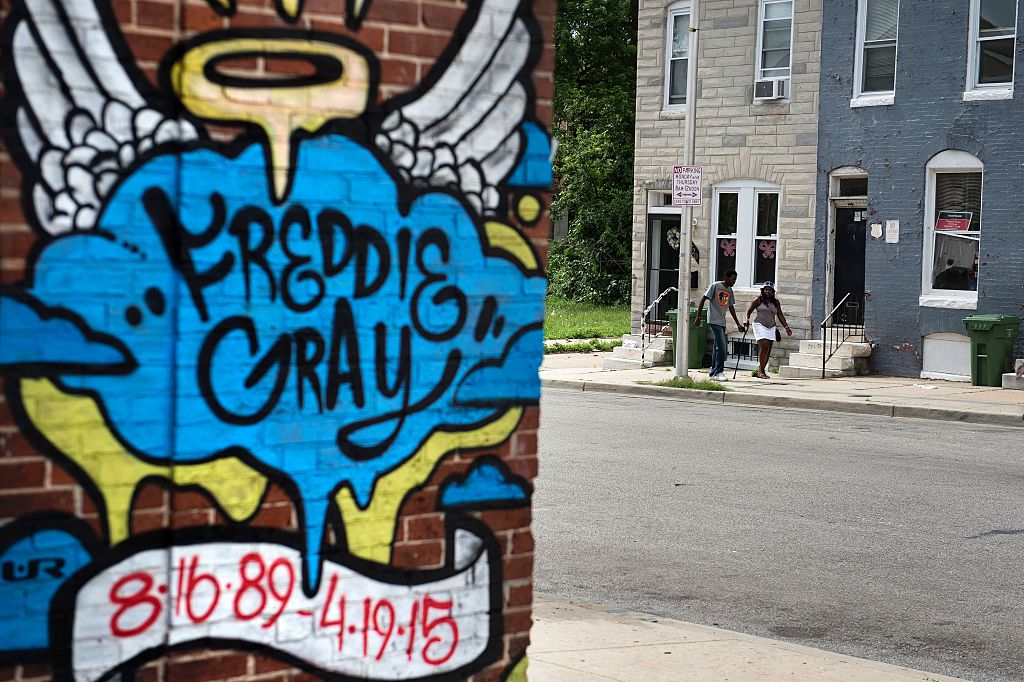How the death of Freddie Gray made Baltimore more dangerous


A free daily email with the biggest news stories of the day – and the best features from TheWeek.com
You are now subscribed
Your newsletter sign-up was successful
A sudden surge in violent crime in Baltimore coincided with one particular event — the death of Freddie Gray.
Police in Baltimore faced heavy criticism and protests after Freddie Gray, a black man, suffered a fatal spinal injury while in police custody in 2015, and have been reporting fewer crimes in the city ever since, USA Today reported Thursday.
While law enforcement is still responding to everyday 911 calls, they are seemingly turning a blind eye to crimes that they previously reported. In recent years, the murder rate and number of shootings has skyrocketed, making Baltimore the deadliest big city in the U.S. Experts say that the rioting in 2015 changed the Baltimore police force, making officers less likely to act on suspected crime they witness on a daily basis, like drug deals and traffic violations. The number of instances in which an officer approached a Baltimore resident for questioning dropped 70 percent between 2014 and 2017, USA Today found.
The Week
Escape your echo chamber. Get the facts behind the news, plus analysis from multiple perspectives.

Sign up for The Week's Free Newsletters
From our morning news briefing to a weekly Good News Newsletter, get the best of The Week delivered directly to your inbox.
From our morning news briefing to a weekly Good News Newsletter, get the best of The Week delivered directly to your inbox.
Backlash over Gray's death forced Baltimore law enforcement to examine its use of force and potential biases against minorities, but officers say it also made them reluctant to engage in some situations. "They realize that if they do something wrong, they're going to get their head bit off," said a former Baltimore lieutenant. "There's no feeling that anybody's behind them anymore."
But critics say it doesn't have to be one or the other, and that police should be able to protect the city while still protecting individuals' rights. "What it says is that if you complain about the way the police do our job, maybe we'll just lay back and not do it as hard," said an ACLU advocate. Around 150 people have been killed in Baltimore so far this year. Read more at USA Today.
A free daily email with the biggest news stories of the day – and the best features from TheWeek.com
Summer Meza has worked at The Week since 2018, serving as a staff writer, a news writer and currently the deputy editor. As a proud news generalist, she edits everything from political punditry and science news to personal finance advice and film reviews. Summer has previously written for Newsweek and the Seattle Post-Intelligencer, covering national politics, transportation and the cannabis industry.
-
 The ‘ravenous’ demand for Cornish minerals
The ‘ravenous’ demand for Cornish mineralsUnder the Radar Growing need for critical minerals to power tech has intensified ‘appetite’ for lithium, which could be a ‘huge boon’ for local economy
-
 Why are election experts taking Trump’s midterm threats seriously?
Why are election experts taking Trump’s midterm threats seriously?IN THE SPOTLIGHT As the president muses about polling place deployments and a centralized electoral system aimed at one-party control, lawmakers are taking this administration at its word
-
 ‘Restaurateurs have become millionaires’
‘Restaurateurs have become millionaires’Instant Opinion Opinion, comment and editorials of the day
-
 Nobody seems surprised Wagner's Prigozhin died under suspicious circumstances
Nobody seems surprised Wagner's Prigozhin died under suspicious circumstancesSpeed Read
-
 Western mountain climbers allegedly left Pakistani porter to die on K2
Western mountain climbers allegedly left Pakistani porter to die on K2Speed Read
-
 'Circular saw blades' divide controversial Rio Grande buoys installed by Texas governor
'Circular saw blades' divide controversial Rio Grande buoys installed by Texas governorSpeed Read
-
 Los Angeles city workers stage 1-day walkout over labor conditions
Los Angeles city workers stage 1-day walkout over labor conditionsSpeed Read
-
 Mega Millions jackpot climbs to an estimated $1.55 billion
Mega Millions jackpot climbs to an estimated $1.55 billionSpeed Read
-
 Bangladesh dealing with worst dengue fever outbreak on record
Bangladesh dealing with worst dengue fever outbreak on recordSpeed Read
-
 Glacial outburst flooding in Juneau destroys homes
Glacial outburst flooding in Juneau destroys homesSpeed Read
-
 Scotland seeking 'monster hunters' to search for fabled Loch Ness creature
Scotland seeking 'monster hunters' to search for fabled Loch Ness creatureSpeed Read
